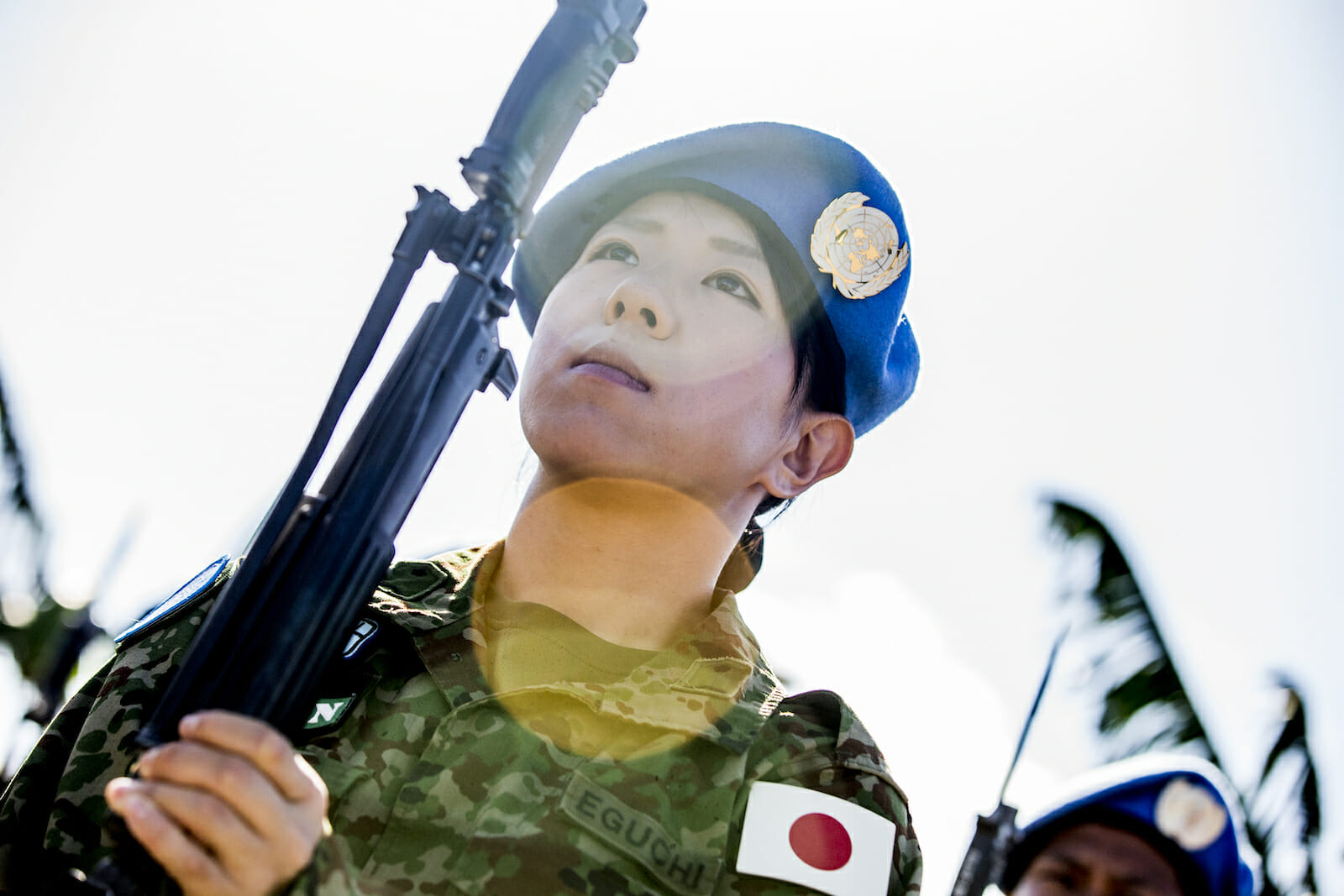
Is the World Ready to Privatize Peace? The Potential of Private Military Companies in UN Peacekeeping Operations
In the 21st century, privatization has become common practice in so many spheres of international relations, that it came to seize the military sector too. With increasingly complex conflicts and new forms of violence – coupled with chronic underfunding – making it difficult for the United Nations to gather and deploy sufficient peacekeepers across its peace operations, it is past time that private military companies are given a serious shot.
Although the practice of contracting private military and security companies (PMSCs) in conflict zones is not new, their use in UN peacekeeping operations is still a largely overlooked and sparsely regulated option. For decades, concerns about the legitimacy of private military contractors and the international community’s reluctance to break states’ monopoly on the use of force have effectively hampered any attempt at fully exploring PMSCs’ untapped potential in the context of peacekeeping. So much so that even at the height of the 1994 Rwandan genocide, with the UN facing dire troop shortages and thousands of Tutsis exposed to brutal violence and death, then Under-Secretary-General for Peacekeeping Kofi Annan considered hiring private military services but had to quickly dismiss the idea, famously stating that “the world may not be ready to privatize peace.” What followed is sadly known.
It’s 2020 and the humanitarian cost of armed conflict is far from being under control, with the International Committee of the Red Cross estimating that today, about two billion civilians are affected by fragility, conflict, and violence worldwide. While the protection of civilians has made its way as one of the top priorities of UN peacekeeping mandates, the resources allocated to fulfill this objective are chronically insufficient. Because troop contributions are voluntary and because major powers are not eager to sacrifice their troops in countries where they have no vested political interests, the ranks of UN peacekeeping contingents deployed to Africa and the Middle East are overwhelmingly represented by developing countries. These often lack the training, experience, and equipment needed to cope with complex conflict environments. In addition, contributing countries are willing and able to deploy only so many troops, which quite often results in overstretched peace operations and overly ambitious mandates. This shortage of human resources and military equipment is a well-known issue that severely affects the UN’s capacity to achieve stability on the ground.
On the other hand, the success of private military firms in this field is based on their access to a number of key resources that could effectively fill critical gaps, including one which is notoriously scarce in UN-led peacekeeping and regularly brings it on the brink of collapse: money. And of course, anything that money can buy. Because PMSCs are private businesses, their success is solely based on the achievement of strategic goals and they are not subject to the same constraints affecting state-deployed troops. They are well-organized, well-trained, have more straightforward chains of command, and access to the latest military technology and software. One of the most famous examples in this field is the South-Africa based Executive Outcomes, which intervened and successfully changed the odds in favor of peace, ending protracted fighting in Angola and Sierra Leone in the early 1990s.
Many have raised concerns on the difficulty of framing PMSCs under international humanitarian law (IHL) and human rights law, pointing to the fact that private military contractors, for their very peculiar nature, might be operating within a “normative vacuum” and thus be hardly subject to prosecution in the case of international law violations. Are private military staff combatants or non-combatants in IHL terms? Would they be prosecuted by national or international courts? Are they entitled to participating in combat at all? While these concerns are legitimate and should not be readily dismissed, it is important to note that since PMSCs first deployment in conflict zones during the nineties, a substantial body of literature and practical tools addressing the status of PMSCs in peacekeeping has emerged. Authoritative voices have spoken to dissipate such concerns and have come together to create guidelines and recommendations on how to make the best use of PMSCs without breaching IHL norms. One of the most prominent initiatives was the 2008 Montreux Document, a joint initiative between the Swiss Department of Foreign Affairs and the International Committee of the Red Cross, outlining best practices for contracting private military and security services in armed conflict.
One last, crucial thing to consider is that contrary to popular belief, PMSCs in peacekeeping operations are rarely employed in direct combat. Most often they provide a wide variety of security-related services that are essential for peacekeepers’ day-to-day operations, without ever seeing the battlefield. They perform risk assessments, demining, physical protection of assets and convoys, and run airfields utilized for the movement of troops. In some instances, this sort of assistance has proved to be life-saving for UN peacekeepers. Yet the practice of outsourcing these services remains vastly uncommon and just as scarcely regulated as any other aspect of PMSC’s involvement in UN peace operations.
In sum, PMCSs are ideally positioned to effectively serve as force-multipliers in UN peacekeeping operations, thus enhancing the already existing resources but without taking over control of the operations or even being in the position to potentially violate international law. Surely their involvement and tasks need to be clearly defined and outsourcing practices should become more common. Concerns about IHL violations, rather than taking PMSCs completely out of the scene, should trigger deeper conversations about accountability and stricter, more targeted regulations against human rights violations when committed by private military contractors. Clearly, with so many civilian lives at risk across the world, in order to deliver on its promise to “leave no one behind,” the UN must start rethinking the way human security is provided on the ground.
